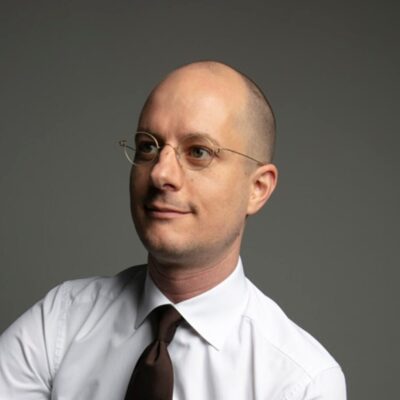
It is no longer a secret that Russia and China, with their strategic foresight, are actively pursuing diversification away from the dollar. This shift gained momentum when the United States and its allies implemented sanctions against Russia and froze assets totalling 300 billion dollars. The consequences of this significant shift and subsequent asset freeze are multifaceted.
By Wouter van der Wiel
Moving away from the dollar will have broad implications for the global financial system, causing non-Western nations to reconsider their reliance on the U.S. - and the collective West -and its currency.
These frozen assets, comprising nearly half of Russia's official international reserves, have created a new status quo that has presented intriguing opportunities for many countries in the past two years. This could cause a significant shift in global economic power dynamics, a prospect that should not be overlooked but embraced with optimism.
It also underscores Russia's skill in mitigating sanctions and highlights its significant impact on its financial stability. In addition, it demonstrated Russia's resilience and vulnerability, a testament to its adaptability and strategic financial planning.
Russia and its President, Vladimir Putin, are now forging international partnerships with countries that do not oppose sanctions but seek common ground in economic, cultural, and mutual respect.
The strengthening of the BRICS played a pivotal role in this perspective. The alliance significantly influences the global landscape. Founded by Brazil, Russia, India, China, and South Africa, the BRICS was recently expanded to include Egypt, Ethiopia, Iran, and the United Arab Emirates. It is a powerful alliance of oil-producing countries representing over 40 per cent of the world's population and, as of 2023, 32 per cent of the world's GDP.
The BRICS and their multilateral bank, NDB bank
Together, the expanded alliance will continue to build on the development of the New Development Bank (NBD), established by its founding members. The NDB bank thus has new sponsors. Therefore, the NDB deserves more public attention. Why does the NDB need more attention?
Despite its classification among the 'major multilateral development banks,' the New Development Bank (NDB) has encountered challenges in attracting new members or retaining existing ones during its eight years of operation.
Consequently, its relatively limited expansion has led to minimal public awareness compared to counterparts such as the Asian Infrastructure Investment Bank (AIIB). The AIIB's robust growth trajectory starkly contrasts with the NDB's perceived stagnation, highlighting its underperformance in fulfilling its mandate.
Despite limited activities, NBD awaits new management
Although the NDB's influence has been limited so far, speculation is rife about the appointment of the next head of the NDB in 2025 as current chief Dilma Rousseff's term ends. One thing is sure: the Russian Federation will likely pay more attention to the newly appointed management and the new bank board.
Now, all eyes are on Russia, especially with the upcoming BRICS summit. The summit will take place in October 2024 in Kazan, the capital and largest city of the Republic of Tatarstan in Russia. Kazan is central to Russia's cultural heritage and is one of the oldest Islamic regions.
This also indicates why Russia manages to maintain healthy ties with Islamic countries and cultures, much to the suspicion of the US and its allies. Therefore, there will be more visitors from the Islamic community this time to Russia.
The recent addition of Iran, Saudi Arabia, UAE, Egypt, and Ethiopia as new members of BRICS could significantly affect the R5 project, potentially influencing its viability scale and global economic effects.
This expansion of BRICS, known for its geopolitical and economic significance, especially regarding energy, emphasises the bloc's efforts to diversify and enhance its economic and political influence.
The expansion of BRICS to include oil-producing states from the Middle East and Africa introduces a new dimension to discussions on de-dollarization and using local currencies for international trade. This development may support the development and implementation of the R5 project.
Is the idea of decoupling from the USD Russian?
It is certainly no surprise, given recent Putin's comments to move away from the dollar, especially given recent events such as the conflict in Ukraine, led by the boycott and seizure of Russian assets, have accelerated these efforts.
Is decoupling from the USD feasible? Yes, and it is about time. This includes the readiness of alternative systems and infrastructure and the willingness of other nations to participate. Particularly, given the BRICS alliance's resource-rich economies involved, it is even more feasible.
The mention of the BRICS alliance potentially introducing a digital currency is also valid. Coincidentally or not, all founding countries’ currencies start with the letter 'R'—Real, Ruble, Rupiah, Renminbi, and Rand. That is why it might be possible to name it the BRICS R5 Currency. We must be cautious about what this currency will be, whether digital or non-digital.
It is essential to be cautious about digitalisation and its potential for totalitarian control. While digital currencies and increased digitalisation offer opportunities for efficiency and innovation, they also raise alarms about privacy, surveillance, and totalitarian government control.
The upcoming BRICS 2024 summit in Kazan will likely provide further insights into these discussions and the direction these nations take regarding their currencies and financial systems. It is indeed a moment of significant curiosity and anticipation for observers monitoring current international and global developments.






